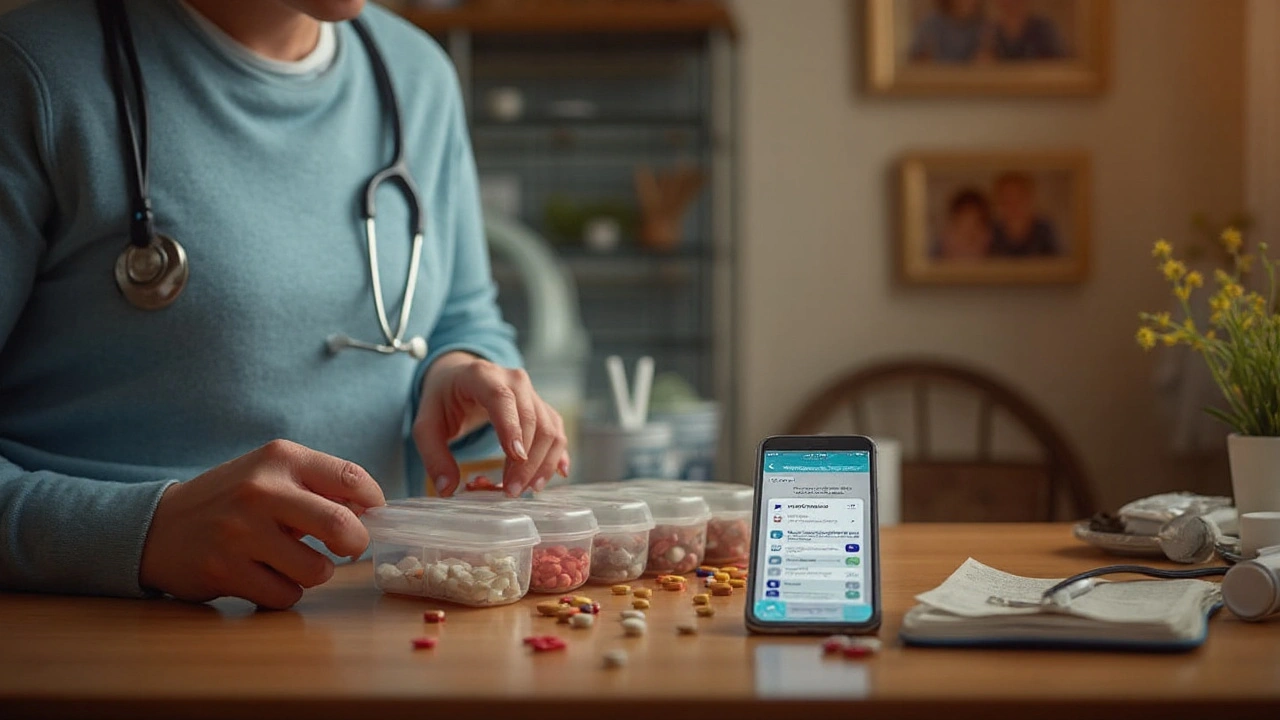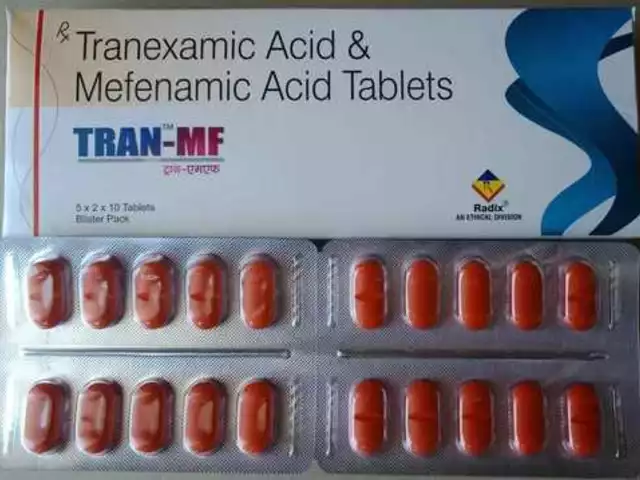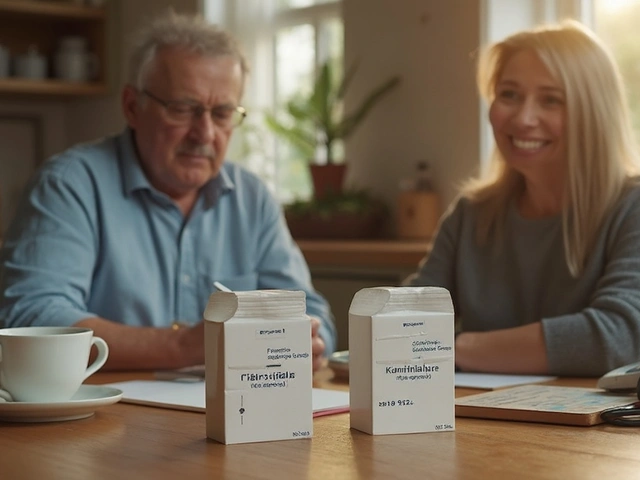 22
Sep,2025
22
Sep,2025
Bicalutamide is a non‑steroidal anti‑androgen that blocks androgen receptors to slow the growth of prostate cancer cells. Approved in 1995, it is commonly prescribed as part of combined androgen deprivation therapy (ADT). While the drug can extend survival, the treatment journey often feels like a marathon for both the patient and the caregiver a family member or friend who helps with daily tasks, medication, and emotional support. This guide pulls together medical facts, real‑world caregiving strategies, and resources you can use right away.
Understanding Bicalutamide and Its Place in Prostate Cancer Care
Prostate cancer, the most common cancer among Australian men over 50, often progresses based on testosterone signaling. Prostate cancer a malignant tumor of the prostate gland can be managed with surgery, radiation, or hormone‑based therapies. Bicalutamide belongs to the hormone therapy treatment that lowers or blocks male hormones family, specifically as an androgen receptor antagonist. It is usually taken once daily at 50mg, often alongside a luteinizing hormone‑releasing hormone (LHRH) agonist.
Key advantages of Bicalutamide include oral administration (no injections) and a relatively tolerable side‑effect profile compared with older drugs like flutamide. However, because it works by altering hormone levels, patients may experience hot flashes, fatigue, breast tenderness, or liver enzyme changes. Understanding these effects helps caregivers anticipate needs and coordinate with the health‑care team.
Typical Side Effects and What Caregivers Can Do
Side effects can be grouped into three categories:
- Hormonal symptoms: hot flashes, decreased libido, and breast changes.
- Metabolic changes: weight gain, insulin resistance, and mild liver enzyme elevation.
- Psychological impact: mood swings, anxiety, and occasional depression.
Each of these areas offers a chance for the caregiver to intervene with small, concrete actions.
Medication adherence the practice of taking medicines exactly as prescribed is critical because missed doses can trigger a rise in prostate‑specific antigen (PSA) levels, signaling disease progression. Use a pill organizer, set phone alarms, or pair the dose with a daily routine such as breakfast.
For hot flashes, keep the environment cool, dress in layers, and offer a cold beverage. Some patients find that a short walk or deep‑breathing exercises reduce intensity.
Liver health can be protected by encouraging a balanced diet low in alcohol and saturated fats. If blood tests show rising enzymes, prompt a call to the oncologist; early adjustment can prevent serious injury.
Emotional changes warrant a gentle listening ear. Validate feelings, encourage participation in support groups, and consider professional counseling if anxiety interferes with daily life.
Practical Caregiver Checklist
- Create a medication schedule using a pill box a compartmentalized container for daily doses.
- Track side effects in a simple notebook; note severity, timing, and any triggers.
- Arrange regular blood work appointments; set reminders a week before each test.
- Prepare easy‑to‑digest meals rich in fiber, lean protein, and omega‑3 fatty acids.
- Plan low‑impact exercises like walking, stretching, or water aerobics to combat fatigue.
- Maintain open communication with the oncologist doctor specialized in cancer treatment and the local pharmacist health professional who dispenses medication.
Supporting Physical Health During Treatment
Nutrition plays a supportive role in managing both cancer and medication side effects. Aim for at least 1.5g of protein per kilogram of body weight daily to preserve muscle mass. Foods rich in antioxidants-berries, leafy greens, and nuts-help counter oxidative stress caused by hormonal manipulation.
Hydration is another simple yet often overlooked factor. Encourage at least 2L of water a day; this aids kidney function and can lessen the severity of hot flashes.
Exercise, even in modest amounts, improves mood and reduces treatment‑related fatigue. A 30‑minute walk most days of the week is enough to see benefits, and it can be a joint activity that strengthens the caregiver‑patient bond.

Emotional and Mental Well‑Being
Facing a cancer diagnosis can trigger a grief cycle for both the patient and the caregiver. Acknowledge that feelings of anger, sadness, or guilt are natural. Encourage the patient to express concerns, and practice active listening-repeat back what you hear to show you understand.
Connecting with a support group a community of patients and families sharing similar experiences can normalize the journey. Many Australian hospitals run weekly virtual meetings; a quick call to the hospital’s oncology department can reveal options.
Mindfulness apps, guided meditation, or simply a daily 5‑minute breathing exercise can lower stress hormones. If the patient shows signs of clinical depression-persistent low mood, loss of interest, or thoughts of hopelessness-seek a referral to a mental‑health professional promptly.
Navigating the Health‑Care System
Prostate cancer treatment involves several professionals: the oncologist, urologist, radiation therapist, pharmacist, and often a dietitian. Create a simple contact list with names, phone numbers, and preferred communication methods. Store it in a visible place, like the kitchen fridge.
Appointments can pile up quickly. Use a digital calendar (Google Calendar or Outlook) and color‑code entries: blue for medication checks, red for doctor visits, green for labs. Share the calendar with other family members so they can step in when needed.
Before each appointment, prepare a short summary: current medication dose, side‑effect diary, and any questions. This focused approach respects the clinician’s time and ensures nothing is overlooked.
Comparison of Common Anti‑Androgens
| Drug | Brand | Typical Dose | Key Side Effects |
|---|---|---|---|
| Bicalutamide | Casodex | 50mg daily | Hot flashes, breast tenderness, mild liver enzyme rise |
| Flutamide | Eulexin | 250mg three times daily | Higher risk of liver toxicity, gastrointestinal upset |
| Enzalutamide | Xtandi | 160mg daily | Fatigue, hypertension, seizure risk (rare) |
Choosing the right anti‑androgen depends on the patient’s liver function, tolerance for dosing frequency, and overall health. Bicalutamide’s once‑daily schedule makes it the most caregiver‑friendly option for many families.
Key Takeaways for Caregivers
- Know the medication: Bicalutamide blocks androgen receptors and is taken once daily.
- Track side effects diligently; early reporting can prevent complications.
- Implement a medication‑adherence system-pill box, alarms, or a shared calendar.
- Support nutrition, hydration, and gentle exercise to boost energy.
- Prioritize emotional health: listen, connect to support groups, and seek professional help when needed.
- Stay organized with contact lists, appointment calendars, and concise summaries for health‑care visits.
With these strategies, caregivers can turn the challenging Bicalutamide treatment period into a more manageable, even empowering, experience for the whole family.

Frequently Asked Questions
What is the main purpose of Bicalutamide in prostate cancer treatment?
Bicalutamide blocks androgen receptors, preventing testosterone from stimulating cancer cells. It is usually combined with another hormone‑lowering drug to achieve stronger disease control.
How can I remember to give the medication every day?
Set a phone alarm at the same time each day, keep the pills in a weekly organizer, and pair the dose with a daily habit like breakfast or brushing teeth.
Which side effects should prompt an immediate call to the doctor?
Sudden yellowing of the skin or eyes, severe abdominal pain, rapid weight loss, or any signs of a seizure require urgent medical attention. Also, if liver enzyme tests rise sharply, contact the oncologist.
Can diet help reduce Bicalutamide side effects?
A balanced diet rich in lean protein, whole grains, and omega‑3 fatty acids can mitigate fatigue and support liver health. Limiting alcohol and processed sugars also lowers the risk of liver enzyme elevation.
What kind of exercise is safe during hormone therapy?
Low‑impact activities such as brisk walking, stationary cycling, swimming, or gentle yoga are ideal. Start with short sessions and gradually increase duration as stamina improves.
How do I find a support group for prostate cancer patients?
Contact the hospital’s oncology department or Cancer Council Victoria; they both run in‑person and virtual groups. Online forums hosted by reputable cancer charities also provide a safe space for sharing experiences.
Is Bicalutamide safe for older adults with other health conditions?
Generally yes, but dosage may need adjustment for liver disease or severe heart conditions. The treating oncologist will review all comorbidities before prescribing.






You got this! Bicalutamide can feel like a roller‑coaster, but every pill is a step toward keepin’ the bad cells in check. Set a fun alarm, maybe a goofy song, so the med never gets missed. Keep the house cool for those hot flashes-think fans, iced tea, and light layers. Celebrate small wins, like a good night’s sleep or a brisk walk. Remember, you’re not alone; the whole crew is behind you.
Stay positive, stay strong!
It’s true that caring can feel like walking a tightrope, but taking it one day at a time makes the journey manageable. When you notice a new side effect, jot it down right away-this simple habit creates a clear picture for the doctor and can prevent bigger issues later. Think of the medication schedule as a shared rhythm; pairing it with breakfast or brushing teeth turns it into a habit that sticks. Also, remind yourself that feeling overwhelmed is natural; giving yourself a moment to breathe can recharge your compassion. By staying organized and compassionate, you’re building a solid foundation for both you and the patient.
Just keep the water flowing and the meds on schedule, and you’ll do fine.
Adherence to the Bicalutamide regimen is crucial for maintaining androgen receptor blockade; missed doses can precipitate a PSA surge due to loss of pharmacodynamic suppression. Implementing a pharm‑compatible pillbox synchronized with a chrono‑triggered reminder reduces non‑compliance risk. Additionally, monitor hepatic transaminases quarterly to catch subclinical hepatotoxicity early. Encourage a low‑glycemic diet to mitigate insulin resistance, which can be exacerbated by androgen deprivation. Regular moderate‑intensity aerobic activity, such as 30‑minute brisk walking, supports cardiovascular reserve often compromised during ADT.
While your checklist is thorough, let’s not forget that simplicity often wins over complexity; a single daily alarm can be more effective than an elaborate spreadsheet.
Caring for someone on Bicalutamide is a marathon, not a sprint, and pacing yourself is essential.
Start each day with a brief mental rehearsal of the medication routine, visualizing the pill going into the organizer at breakfast.
This mental cue reinforces habit formation and reduces the chance of an accidental skip.
Keep a small notebook handy to log any side effects, noting the time of day, intensity, and what you were doing beforehand.
Over time this log becomes a valuable tool for the oncologist to spot patterns that might otherwise be missed.
Encourage the patient to stay active; even a gentle 10‑minute walk after lunch can boost mood and counteract fatigue.
Pair the walk with a conversation about something enjoyable – a favorite show, a funny story, or plans for the weekend – to keep spirits up.
Nutrition plays a pivotal role: aim for lean proteins like chicken or tofu, whole grains, and a rainbow of vegetables to support liver health.
Hydration is equally important; set a goal of at least eight glasses of water a day and keep a bottle within arm’s reach.
When hot flashes strike, offer a cool compress, a fan, or a chilled beverage, and remind the patient to dress in breathable layers.
Emotional ups and downs are normal; practice active listening by reflecting back what the patient shares, which validates their experience.
If anxiety becomes persistent, suggest a guided meditation app or short breathing exercise before bedtime.
Don’t hesitate to reach out to support groups, both local and online, as connecting with others in the same boat can alleviate feelings of isolation.
Share the contact list of the care team with a trusted family member so they can step in if you need a break.
Schedule regular check‑ins with yourself to assess your own stress levels and seek help when needed – a rested caregiver is a more effective one.
Remember, every small act of kindness you provide adds up to a powerful collective force against the disease.
I totally agree with what you said, but i want to add a few more points that often get missed. First, the pill box should be placed in a spot that the patient sees everyday – not hidden in a drawer, otherwise they might forget it when they’re busy. Second, liver labs should be scheduled not just every few months but also after any new symptom like nausea or abdominal pain – that can be a early sign of trouble. Third, don’t underestimate the power of music; playing a calm playlist while taking the medication can turn the routine into a pleasant ritual. Also, make sure the patient has easy access to a phone number for urgent questions, maybe a sticky note on the fridge. Lastly, remember to celebrate the tiny victories – a good night’s rest, a completed walk, or even a day without a hot flash – these are the building blocks of morale.
Set up a shared Google Calendar now; it removes any guesswork about appointments.
Having a quick daily check‑in with the patient can catch issues early, and it also shows you’re there for them beyond just the meds.
That's a solid habit; I’ve seen it work well for others.